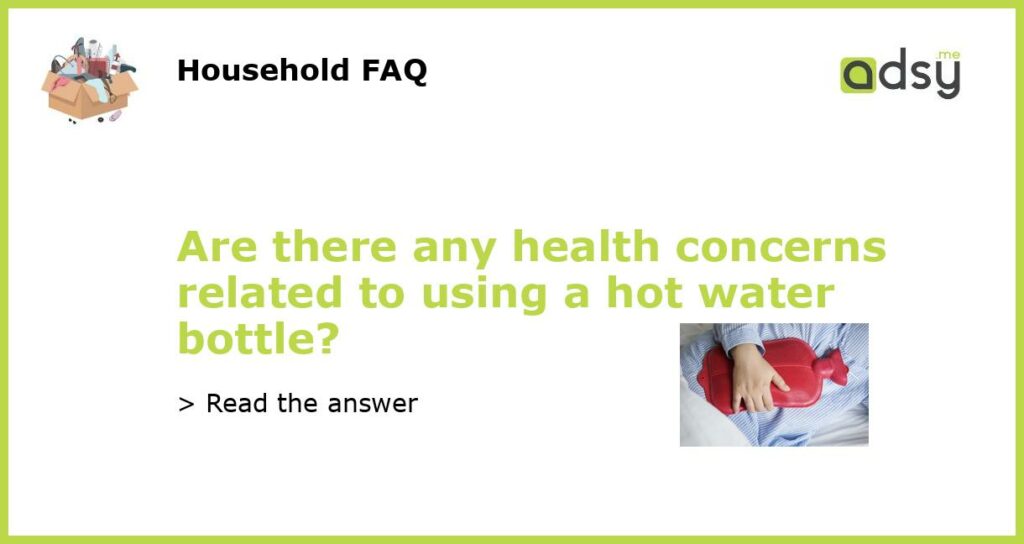Health Concerns with Using Hot Water Bottles
Hot water bottles have been used for decades to provide warmth and comfort in cold weather, relieve muscle pains, reduce menstrual cramps, and improve sleep quality. However, some people raise concerns about the safety and potential health risks associated with using hot water bottles. In this article, we explore the possible health concerns related to using hot water bottles and provide some tips to minimize the risks.
Burns and Scalds:
One of the most apparent health concerns related to hot water bottles is the risk of burns and scalds. Inappropriate use of hot water bottles, such as filling them with boiling water, leaving them in direct contact with the skin for extended periods, or overheating them, can lead to thermal injuries. To prevent burns and scalds, use hot water bottles with covers, check the temperature before use, avoid sleeping on them, and never leave them unattended near children or pets.
Infections:
If not used or stored correctly, hot water bottles can become breeding grounds for bacteria and fungi, potentially causing infections. For instance, adding essential oils or other substances to the water can contaminate the bottle and lead to skin irritations or infections. To avoid infections, always use clean water, empty the bottle after each use, dry it thoroughly, and store it in a cool, dry place.
Electric Shock:
Electric hot water bottles or heating pads can be convenient but also pose a risk of electric shock if not handled properly. Cheap or knock-off products without safety certifications or faulty electrical systems can cause electric accidents or fires. To prevent electric shocks, always buy hot water bottles from reputable sellers, check the certifications, avoid using damaged or frayed cords, and never expose them to water or moisture.
Carbon Monoxide Poisoning:
If you use hot water bottles for overnight heating or heating while sleeping, make sure they do not release carbon monoxide gas, an odorless and colorless gas that is toxic at high concentrations. Carbon monoxide poisoning can cause headaches, dizziness, nausea, and even death in severe cases. To avoid carbon monoxide poisoning, never use hot water bottles with cracked or damaged rubber, use them in well-ventilated rooms, and replace old or worn-out bottles regularly.
Interference with Medical Devices:
Hot water bottles that rely on heat through microwave or corded heating can interfere with medical devices like pacemakers, insulin pumps, or oxygen tanks. The electromagnetic field generated by these devices can disrupt or damage the medical equipment, leading to life-threatening consequences. To avoid interference with medical devices, consult with your doctor or medical professional before using hot water bottles or heating pads, and follow their recommendations.
Hot water bottles can be a great source of comfort and relief from pain or cold weather, but they can also pose health risks if not used or stored properly. To minimize the potential health concerns related to hot water bottles, always use them according to their instructions, choose high-quality and safe products, and follow some common-sense safety tips to prevent burns, infections, electric shock, carbon monoxide poisoning, and interference with medical devices.






